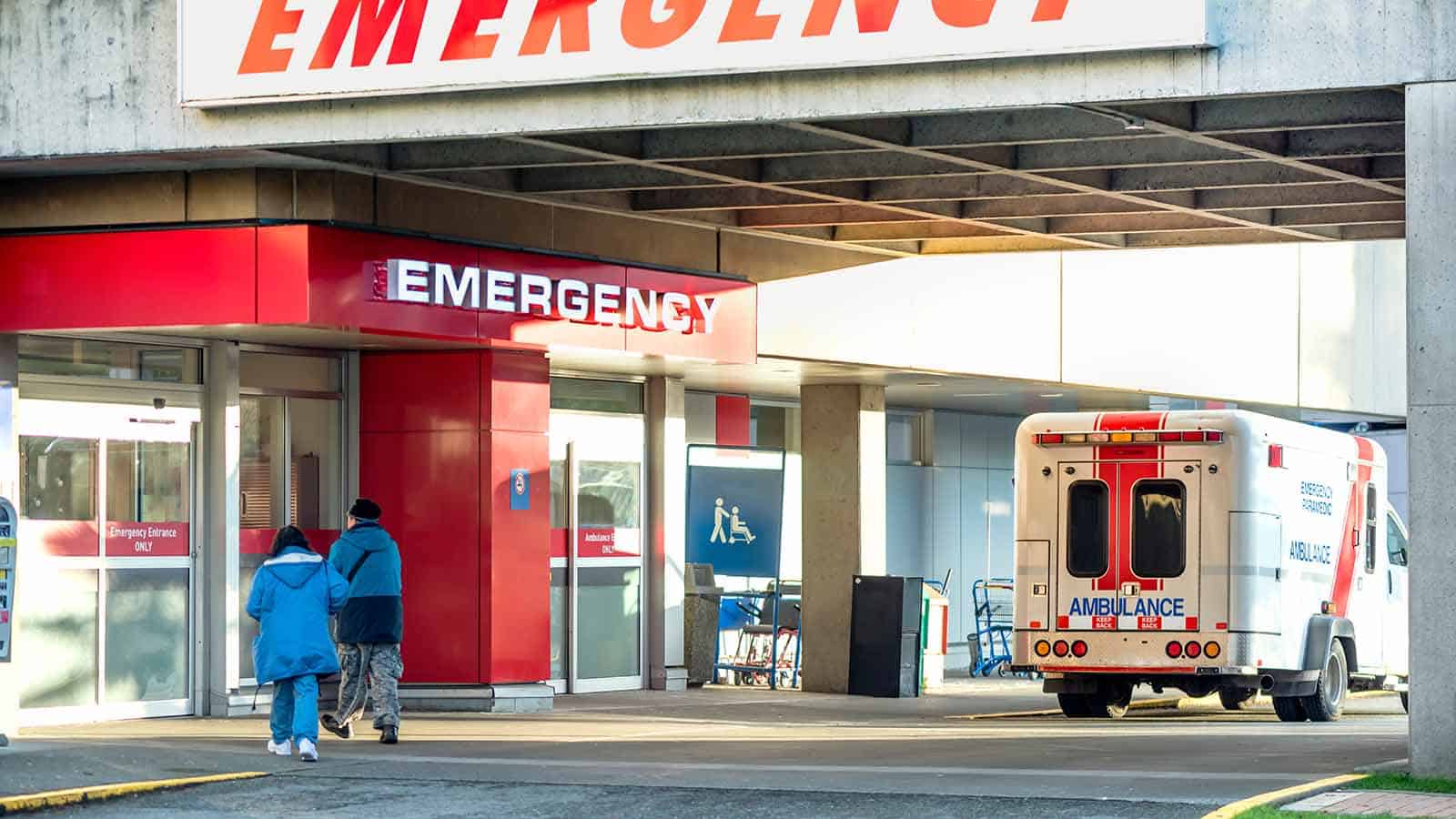This is a critical time in the history of healthcare safety. We recently participated in the IAHSS Annual Conference and Exhibition, the largest gathering of healthcare security and safety leaders in the country. According to a survey by Regina Corso Consulting on behalf of Global Healthcare Exchange (GHX), 60% of Americans reported being concerned about the safety and security of loved ones in a hospital or medical facility, 66% agreed nurses and other frontline healthcare workers are more likely than those in other professions to be victims of workplace violence, and 69% agreed safety is a cause of nurses leaving the profession in large numbers.
Powered by AI, the Omnilert Active Shooter Solution reliably and rapidly visually recognizes gun threats and alerts Omnilert monitoring centers to verify the potential threat in mere seconds. If confirmed, our systems immediately escalate the issue to first responders and instigates multi-channel communication alerts and automated pre-defined safety protocols. The native gun detection and mass notification integration reduces the time from first sighting to alerting to a handful of seconds and ultimately saves lives.
Hot Topics at the Show
One of the most widely talked-about topics was the need for more integration among the various security technologies. There are so many different systems available today and most companies have already made a significant investment in their own security and surveillance solutions. They just want things to work and more importantly, they want all the various systems to work together. They also want to bring in new technologies that can be easily integrated into the systems they already have. That is one of the key reasons we designed our Gun Detect solution to work with cameras already installed in a facility.
Another hot topic of conversation was around the perceived lack of training for hospital workers in crisis management. Nurses in particular are trained to do their ‘nurse’ job, but they are now thrown into situations that require crisis management and dealing with all types of situations ranging from covid to mental health issues, among other things. The general consensus is that training really should start happening in schools and continue throughout a medical worker’s career. At Omnilert, we could not agree more. Preparedness and being able to react to a situation or potential threat is absolutely critical not only in today’s healthcare environment, but in other industries as well.
Some Presentation Highlights
Whether you were online or in person, the show had some great presentations that sparked important discussions. While we can’t list them all, we pulled out some of our favorite ones below:
- Strategic Security Planning– William S. Marcisz, JD CPP CHPA, President of Strategic Security Management Consulting, gave a presentation titled “Strategic Security Planning: The Most Reliable Path for “Getting to Yes” where he discussed the key differences between planning and strategy – both of which are important for getting to “Yes.”. Planning is thinking before the action takes place, while strategy is using a trick to gain success.
- Improved Decision Making: Your Brain and Cognitive Bias – Dr. Stephanie Stein Leite, Psy.D., CTM Clinical and forensic psychologist, discussed steps in threat assessments and how to make better decisions. Through an engaging lens, Dr. Leite demonstrated how easily we trick ourselves to see the conclusions we wish to see, rather than the ones we should be making.
- Supporting the Growing Mental Health Patient Crisis – Representatives from Seattle Children’s Hospital and Nationwide Children’s Hospital talked about the significant trends of increased mental/behavior health needs, causes of the mental/behavior health services surge, violence mitigation strategies, creating safe/secure environments for mental/behavior health services, and healthcare security practitioners’ approach to addressing continued mental/behavior health needs.
- Strategies for Managing Encounters with Emotionally Confrontational Individuals – Brendan Riley, MS, CHPA Chairperson, IAHSS Boston Chapter, highlighted how it’s not acceptable for healthcare workers to be verbally abused, attacked or subject to bad behavior and how all people should be treated with dignity, courtesy and respect – regardless of how they treat you.
- Review of Untapped Innovative Opportunities and Possibilities around Healthcare Physical Security – Katarina Kemper, MSOL, CHPA, presented a review of missed opportunities, discussed how to brainstorm to find innovative approaches, and highlight how to develop strategy and operationalize projects for implementation.
- Management of Aggression & Violence in Healthcare – Several experts gave an overview of healthcare and workplace violence and then provided a healthcare violent patient prevention & management model.
The Future of Healthcare Safety
The IAHSS provided a needed opportunity to discuss the issues around healthcare safety, as well as many of the solutions available today. Most people agreed with the importance of “preparedness and planning” for potential threats in the future. The show came directly on the heels of the Buffalo supermarket shooting, which intensified this need for most attendees. There were conversations around the tragedy, with an acknowledgement that like many U.S. companies and public spaces, the healthcare environment has much room to improve when it comes to worker and customer safety. Sadly, this was further demonstrated shortly after the IAHSS event with mass shooting events in Oklahoma, Texas and other locations around the US. Each event was tragic and reaffirmed the need for more safety in both public and private places.
.



